

Summer 2025 Newsletter


In Memory of Mary Ross

We are grateful to members of the Ross family for donating £920 to the Aberdeen Independent Multiple Sclerosis coffers following Mary’s death in December 2024. The money was collected at her funeral and from a Just Giving page. Mary’s smiling face will be missed by friends. We are pleased to have Peter joining us at the Westhill exerise session on a Thursday morning.
Potential Health Benefits of Tomatoes by Kayla Blanton


They don’t just look juicy - tomatoes are the most hydrating fruit you can find. You might want to trade your apple a day for another juicy red bite: a tomato. Research has found the versatile fruit boasts bountiful health benefits. One medium-size raw tomato packs more than one gram of fibre into just 22 calories, along with potassium, vitamin A and the antioxidant lycopene. Tomatoes are the fruit with the highest water content and at 94
percent, they are more hydrating than watermelon. Tomatoes can be readily found fresh, canned or in products such as paste or sauce which makes them easy to incorporate into weekly menus and accessible for most budgets. Tomato paste has more concentrated nutrients than raw or canned but cooking fresh ones down into, say, a pasta sauce can provide a similar bang by stewing out the water content. If you choose processed tomato products, look for ones without added sugar, salt and oil when possible. Here are a few reasons to add tomatoes to your diet.
Tomatoes Help You Double-Up on Sun Protection
Tomatoes are abundant in the carotenoid lycopene, a fat-soluble pigment giving red fruits their colour. Lycopene has been found to shield against oxidative stress, including ultraviolet damage from the sun. In essence, if you eat enough of the fruit it could act as an internal sunscreen by preventing sunburn but tomatoes shouldn’t replace regular sunscreen application.
A Tomato-Rich Diet Lowers the Risk of Certain Cancers
The lycopene in tomatoes (most abundantly present in their skin) may protect against more than just skin cancers. People who consume the most tomatoes tend to have lower rates of breast, prostate and lung cancer, possibly because the lycopene in the tomatoes inhibits cancer cell growth and modulates immune function. In concentrated tomato products like tomato paste, the lycopene content may be higher but that doesn’t mean you should stay away from the fresh fruit.
Tomatoes May Preserve Your Eye Health
Tomatoes contain the carotenoids lutein and zeaxanthin which have been found to aid in the preservation of eye health and prevention of age-related macular degeneration and cataracts. The vitamin A found in tomatoes is another key nutrient for eye health and may also reduce the risk of macular degeneration, as well as help prevent night blindness.
The Water in Tomatoes Helps You Stay Hydrated
Tomatoes at 94 percent water, makes them ultra-hydrating. They also contain potassium (292 milligrams per one medium tomato), an electrolyte that supports proper hydration by helping maintain intracellular fluid volume. Tomatoes Pack a Punch of the Antioxidant Vitamin C
One cup of chopped tomatoes provides about 27 percent of the daily recommended value of vitamin C, an antioxidant supporting immune
function and collagen production, reduces inflammation and helps protect against disease-causing free radical damage and aging.

Tomatoes Do Wonders for the Gut
A diet rich in tomatoes may help diversify the gut microbiome which can maintain balanced digestion and an optimised immune system. Research in this area is still in the early stages but experiments with mice found dietary supplementation with tomato powder significantly increased the diversity and richness of the rodents’ gut microbiota which indicates tomatoes show potential for treating inflammatory bowel disease.
The Antioxidants in Tomatoes Are Good for Your Heart
High consumption of tomatoes was associated with a lower risk of cardiovascular disease and death from coronary heart disease. One potential reason: the antioxidants and other nutrients in tomatoes have been associated with a reduced risk of heart disease. Tomato sauce enriched with olive oil was found to lower cholesterol and biomarkers of inflammation.
Tomatoes Can Help You Maintain a Healthy Weight
With only around 20 calories in a medium-size fruit, fresh tomatoes are a low-calorie food and their fibre and high-water content may help you feel full longer and maintain a healthy weight. Canned tomatoes have similar properties, provided they have been processed without added sugar and sodium. Incorporating tomatoes into your diet can be part of a balanced diet.
Staying active with MS by the MS Trust

If you want to keep active with MS, here is a roundup of some of the different types of exercise you can try and the ways they can benefit you.
In the past, people with multiple sclerosis were advised to avoid exertion. Since many people with MS experienced fatigue and found their symptoms worsened when hot, it was best to avoid activities that could be seen as tiring. It transpires this was not good advice.
Regular, moderate exercise is now known to be an important part of maintaining good health and wellbeing for people with MS. There is evidence it can help with many MS symptoms and also with general quality of life.
How can exercise help with my MS symptoms?
There have been many studies to look at the benefits of different kinds of exercise for people with MS. It can be hard to compare these studies but they have, in general, shown exercise to be valuable for people with MS. Exercise is helpful in helping maintain a healthy weight. This reduces your chances of acquiring co-morbidities and can reduce the impact of some MS symptoms, such as pain and fatigue.
Exercising is good for the mind and brain, not just the body. Exercise has been found to be neuroprotective, to improve symptoms of depression, improve cognitive processing speed, visuospatial memory, executive function and cognitive flexibility. These boosts can last for several days after exercising.
Aerobic training


Aerobic exercises are dynamic exercises where you raise your heart rate by moving quickly. This might mean running, dancing or playing a team sport like football or netball. Aerobic exercise is particularly good for cardiovascular health. Moderate intensity aerobic exercise has been shown to improve blood pressure and proportion of healthy fats in the blood. It also reduces the amount of fat stored in the body and can help with weight loss. Depending on the type of exercise, aerobic activity has been shown to improve the aerobic capacity, functional mobility, visuospatial memory, brain volume, fatigue and quality of life of people with MS. Dynamic workouts lead to improvements in balance and co-ordination. There can be further benefits in that the deeper breathing you do with this kind of activity can also strengthen your core muscles and posture. Aerobic exercise improves walking ability, particularly in conjunction with resistance training to strengthen the legs.
High Intensity Interval Training [HIIT] involves aerobic training in short bursts and has been shown to be as effective in fitness and weight loss as other aerobic exercising. The theory is you exercise as hard as you can for a few minutes, take a short break and repeat several times, focusing on a different exercise each time. For people with MS, exercising in short bursts helps to avoid overheating. Shorter workouts are easier to fit into busy lives. Try to maintain regular aerobic activity, as the positive benefits reduce soon after you cease exercising.
Strength
training
Also known as resistance training, strength training might involve exercises where you lift weights, use your body weight to work against (such as sit-ups
or push-ups) or pull against an elastic band. The aim is to build and strengthen your muscles.
Moderate strength training exercise helps with balance and posture and helps combat fatigue. Muscles not used regularly become weakened and require more energy to carry out tasks. This can lead to a cycle of decline, as an already weak muscle not being used will weaken further, a process known as atrophy. Strength training improves general fatigue, cognitive fatigue and increases the connectivity between brain regions in people with MS. It is thought increased brain connectivity may protect against fatigue and future cognitive decline. The positive effects of resistance training last for several weeks after stopping.
Endurance training
Endurance training is training the aerobic system, improving your cardiovascular resilience and making muscles more efficient. It involves regular, steady aerobic exercise, such as cycling, swimming or jogging. You would typically start with shorter distances and time spent exercising and build up to longer periods of exercise.
Over time, endurance training improves your ability to recover from exertion, although care must be taken not to over-exert yourself too quickly. Endurance training has been shown to provide benefits in walking ability in people with MS. When people with MS were studied doing a combination of endurance training with leg resistance training, they found improvements in mobility, balance and co-ordination.
As with other forms of exercise, stopping endurance training generally results in the benefit being lost over time.

Myths and Facts You Should Know About Drinking Water
by Sarah Garone


If there’s one piece of health advice everyone can agree on, it’s drinking water is good for you. The human body is made up of roughly 60 percent water and it’s critical for so many of our body's daily functions. Among water’s many roles in the body, it helps regulate body temperature, aids digestion and protects the brain and spinal cord which is why it's so important to stay well hydrated. We naturally lose water through sweat, urine and breathing so we need to drink plenty of fluids to replace what we’ve lost. For such a basic drink, water is surrounded by much intrigue: How much should you drink? Still or sparkling? How do you know when you’re getting enough or too much? Find out what’s true and what’s not, based on facts everyone should know about the water they’re drinking.
Everyone Needs to Drink Eight Glasses of Water a Day
Myth. You may have heard eight glasses of water is the standard to strive for but this rule of thumb isn’t one-size-fits-all. Fluid needs vary by your age, sex, activity level and body size. As a general rule, the recommendation is women get a total of about 2.7 litres of fluid and men get about 3.7 litres per day of any fluid, not just water. This intake accounts for both beverages and foods, since foods provide about 20 percent of our daily fluids.
Drinking Water Flushes Toxins from Your Body
Fact. Though water doesn’t necessarily neutralize toxins, the kidneys do use water to get rid of certain waste products. If you don’t drink enough water, your kidneys don’t have the amount of fluid they need to do their job properly. If the body does not have sufficient water, then metabolic wastes will not be removed as efficiently as they should.
Bottled Water Is Superior to Tap Water


Myth. It’s not uncommon to prefer the taste of bottled water to tap water but that doesn’t mean it’s better for you in terms of health. Tap water often contains fluoride, a mineral helping to prevent tooth decay and promote dental health. That said, water contamination from lead, copper or bacteria is possible in buildings with old pipes. If you're concerned about contamination in tap water, use a water filter like Brita as a lower-cost, lowerwaste choice than bottled water.
Drinking
Water Can Help Keep Your Skin Moist
Myth. It used to be believed staying properly hydrated led to youthful, vibrant skin but the reality is the amount of water you drink probably has very little to do with what your skin looks like. The moisture level of skin is not determined by internal factors. External factors such as skin cleansing, the environment and skin conditions determine how dry the skin is or will become. Dry skin is linked to low oil and lipid levels in the skin’s membrane and since lipids help prevent water loss, people can still be at risk of dehydrated skin if there are not sufficient lipids to prevent it.
Drinking Water Helps You Lose Weight
Fact. Drinking water won’t specifically trigger weight loss but it can aid the process. Water replaces other calorie-laden beverages in the diet, causing you to reduce your overall number of calories. It can make you feel fuller so you may eat less at each meal. A study published in October 2018 in Clinical Nutrition Researchrevealed people who drank water before a meal consumed fewer calories when it came time to eat.
Yellow Urine Is a Sign of Dehydration
Myth. It can be but not all yellow urine is cause for alarm. Dark yellow urine may be a sign of dehydration. The kidneys filter waste products and reabsorb water and other useful substances from the blood so they control the volume and concentration of urine output. Research has found dehydration leads to
increased urine concentration, turning your urine dark yellow. Taking a multivitamin can also lead to yellow urine.
If You’re Thirsty, You Are Already Dehydrated Myth. Thirst doesn’t mean you’re dehydrated. Hydration is measured by the concentration of chemicals dissolved in the liquid part of the blood. Dehydration is a more serious issue coming with other symptoms besides hankering for some water. Signs of serious dehydration include extreme thirst, less frequent urination, fatigue and dizziness.
You Need Sports Drinks, Not Water, to Function at a High Level in Athletics Myth (usually). Sports drinks may have big advertising campaigns but in most situations, water is all you need to get the fluid necessary to participate in most exercise endeavours. Adequate fluid, especially water, is most important for athletes of all ages as it is the single most important way the body has to transport nutrients and energy and remove heat during exercise. People who compete in highly strenuous activities, like endurance running or longdistance cycling may need to supplement their water intake with sports drinks to offset the electrolytes they lose due to heavy sweating over long periods of time. This doesn’t apply to people who are exercising to get fit. It’s Possible to Drink Too Much Water
Fact. People with certain health conditions can put themselves at risk of complications if they drink too much water. People with some heart conditions, high blood pressure or swelling of the lower legs need to avoid excess water. If you have a history of kidney problems, especially if you have had a transplant, consult your doctor before increasing your fluid intake. Everyone's fluid needs differ based on height, weight, activity level and environment. While there's no specific limit, I’d question anyone who is drinking much more than the recommended amount if they are not losing a lot of sweat. Symptoms of serious overhydration include confusion, nausea, vomiting and coordination problems.
Sparkling Water Isn’t as Hydrating as Still Myth. This simply isn’t true; sparkling water is just as hydrating as noncarbonated. Not only do these beverages restock your fluid supplies, they can be a pleasant flavour detour from the usual H2O. Sparkling water is a great way to hydrate if you don't enjoy still water. Flavoured varieties if they don't have added sugar, can be a great choice instead of plain water.
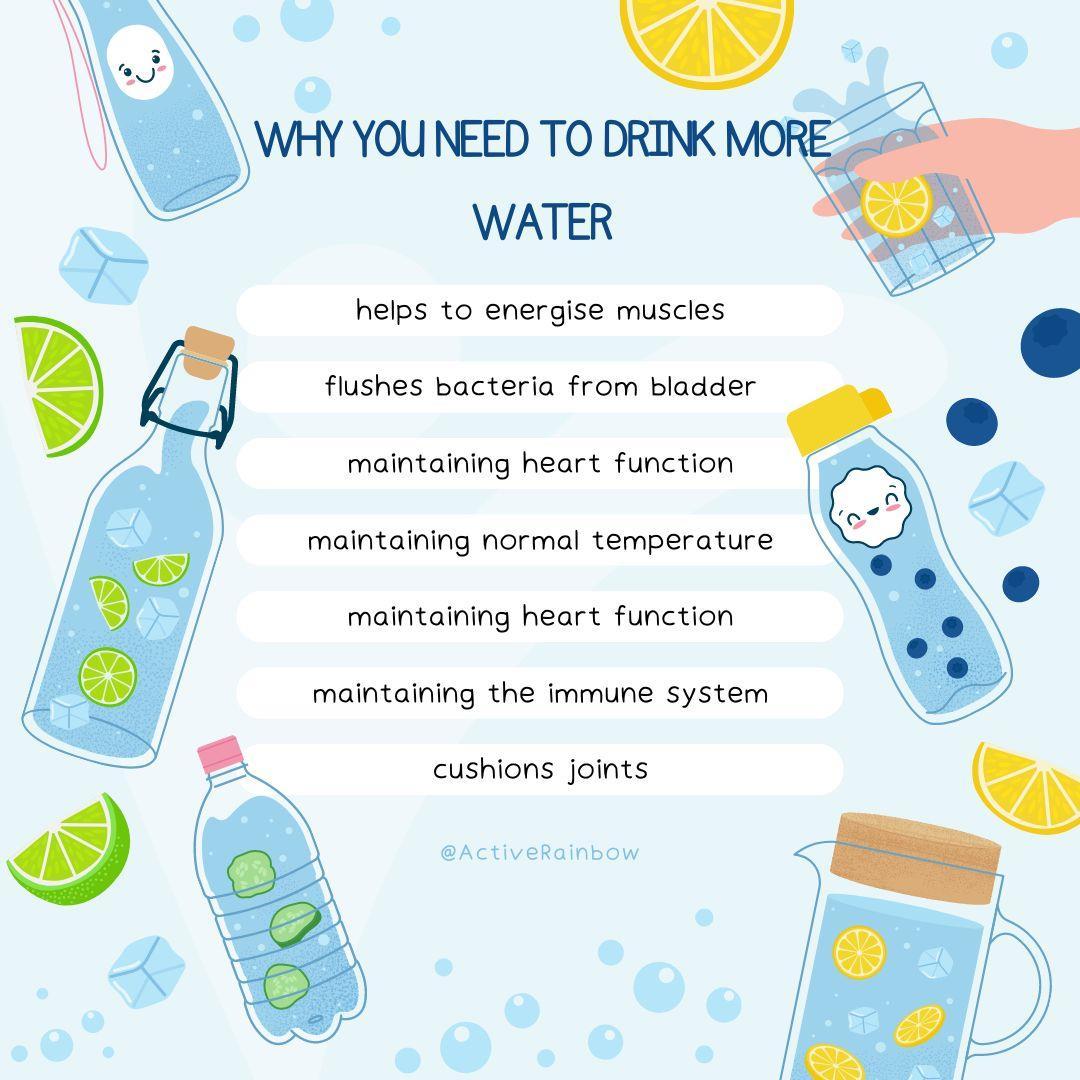


Hitting the MS Wall by
Trevis Gleason


On the road of life with multiple sclerosis there are twists and turns, bumps and potholes, detours and dead ends. Sometimes those twists are loop-deloops, the potholes are bomb craters and the dead ends … well, they can be straight-up cliff faces. And then there is the MS wall. Just as long-distance runners know about ‘hitting the wall’ and plan for how they’ll avoid it or cope with it when it happens, most of us with MS know we can suddenly run out of energy when we’ve been working hard. When we push the envelope only to fall off the edge - that’s hitting the wall. If we chance our arm and try just a little bit more, only to find ourselves looking up at the world from grass, gravel, or tile - that’s the wall, too. Those occasions where we do more than we intended but far less than we used to be able to, only to be forced to recover for the next several days (or more). You guessed it: the MS wall.
Why Does Running Out of Energy Come as Such a Surprise? I’ve hit that wall (again and again and again) over my life with MS. Like many of you, I always seem a bit surprised by the fact it happened. Upon reflection, of course, I should have seen it coming. I know my wife, Caryn, sees it coming every time … but she’s kind enough not to say so (most of the time). This past episode of the MS wall found me not only hitting the wall but having said wall come tumbling straight down on me. I planned too much (though I thought I’d also planned ample periods of rest and escape routes), I did too much (as per usual, Caryn would attest), and I fitted in recovery time after the fact (and nowhere near enough). I was still battling the cold from hell at the time of my most recent meeting with the wall which didn’t help but the fact of the matter is I just don’t seem to learn my lesson.
When Will I Learn My Limits? I note people much older than me trying to act and do as if they were still in the first half of their lives. I quietly scoff at their surprise they no longer can. I think, ‘When will they learn?’ and move on to the next thing. But when will I learn? The MS wall seems to get thicker, higher and heavier on those occasions it falls on me. It must be the case, because I know I’m not going any faster when I hit it, though it seems to hurt a little bit more every time.
Or Will I Find a New Way Around the Wall? The MS wall will stop me in my forward motion and it will flatten whatever it is I’m trying to accomplish. It will not, however, crush my will or my hope one day I’ll find a route around the wall - even though it seems to be very mobile for its size. I hit the MS wall, the wall hit me, the wall fell on me … and I got up again. I’m bruised, I’m tired, I’m (perhaps) a little wiser for the run-in. I know I’ll do it again. I’m just going to have to learn to hit it at a better angle next time.
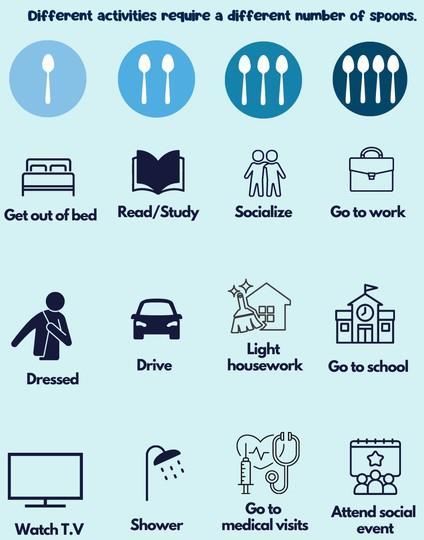
Better Walking with MS by
Brian P. Dunleavy


Eighty percent of people who have multiple sclerosis experience problems with walking within 10-15 years of the onset of the disease and common symptoms - including weakness, poor balance, spasticity and fatigue - can increase your risk for falls. That doesn’t mean people who have MS need to give up being able to get around on their own.
‘Difficulty walking is among the most common of the symptoms that first bring a person with undiagnosed MS to the clinic’ notes Alexius Sandoval, medical director of the multiple sclerosis rehabilitation programme at Johns Hopkins in Baltimore. ‘It’s often the first noticeable symptom and while we can’t cure or reverse MS, we can help maintain the functions you have, use compensatory strategies and keep you moving for as long as possible.’
Here are things you can try to improve your walking with multiple sclerosis:
Physiotherapy
In physiotherapy, therapists evaluate the body’s ability to move and function, then look for strategies to strengthen or compensate for weaknesses or other problems. This might include a programme of exercises and stretches, training in using walking aids such as sticks, crutches, scooters or wheelchairs. The idea is to keep you safe while restoring confidence in your legs and balance.
Occupational Therapy
Occupational therapy is a separate discipline from physiotherapy but its goals are essentially the same: increasing independence, safety and quality of life
during daily activities such as personal care, hobbies, family life and work. To facilitate walking, occupational therapists usually work with physiotherapists to train people to use assistive devices and to simplify tasks at home. Ideally, therapists may perform a home evaluation and offer advice on what people can do to make their homes safer, more accessible and compatible with their limitations and needs. That may include the removal of rugs or furniture they can trip over or to install ramps and grab bars.
Aerobic Exercise
Historically it was thought exercise was bad for people with MS because it could increase the fatigue they experience. However, it’s generally accepted a customised exercise programme tailored to the needs of the individual can help improve energy levels as well as endurance, balance and strength, all of which can lead to better walking and better overall quality of life. While the types of exercises recommended differ from person to person, those aimed at improving walking generally focus on maintaining muscle strength in the legs and, if necessary, weight loss. Maintaining a healthy weight is crucial in MS. The less weight you carry around, the less strain on the legs and the better balance you have. Both aerobic training and resistance training are equally effective at improving lower extremity physical function and fatigue in people who have MS. Resistance training can lead to metabolic changes in people with MS that are linked to improved hip strength, increased walking distance and speed and reduced fatigue.
Walking Aids for Mobility and Independence

Although the goal of most MS treatment plans is to maintain mobility without the need for assistance for as long as possible, many people who have MS will need to use an assistive device at some point.
People are usually resistant to using things like walking sticks to get around as they see a reliance on assistive devices as a loss of freedom but these devices can help people maintain their freedom by enabling them to get around safely. They assist people to walk faster and better.
Working With a Podiatrist
The services of a podiatrist may be helpful. Foot health can be a serious issue for people with MS and podiatrists offer help in a number of ways, from trimming toenails if you can’t do it yourself to treating foot ulcers.
Botox to Reduce Spasticity
Botox is often used to treat a spastic foot drop, in which certain muscles in the leg and foot abnormally force the foot downward, disrupting the natural heel-to-toe gait. If you have this type of foot drop, your doctor may try to correct the problem by injecting Botox into the spastic muscles that force the foot downward. The effects of Botox usually last about three months so injections are repeated when necessary to maintain the desired effect. The side effects are minimal if the injections are performed properly.
Functional Electrical Nerve Stimulation
For some types of walking problems, a functional electrical stimulation (FES) device can help. A FES device transmits a mild electrical stimulus to a muscle which helps it move better. This can help some people with issues like foot drop and lower extremity weakness. The goal is to facilitate and retrain muscles to perform their intended function. For selected individuals, it can work well and can be more convenient to use than a brace.
Regardless of what method or methods you choose, experts emphasise it’s vital to follow the prescribed treatment plan. If you do, you should see the benefits. Because MS is a progressive disease, people too often get stuck on what they can’t do. The job of health professionals is to show them what they can do and how these tools can help them get through their day.
Digital exercise, art/crafts and social sessions

Chris Morrow-Frost, National Clinical Advisor to Secondary Care at NHS England, talking about the AIMS chair-based exercise sessions.
‘This looks great. Deconditioning is, of course, a silent killer.’
MONDAY [10:30 – 11:30] CHAIR BASED EXERCISE 849 9861 7350
MONDAY [13:00 – 15:00] CRAFTS & ART 874 2837 4955
TUESDAY [10:30 – 11:30] CHAIR BASED EXERCISE 879 1483 8365

WEDNESDAY [11:00 – 12:00] SEATED YOGA 881 0351 4498
WEDNESDAY [14:30 – 15:30] SOCIAL GROUP 523 586 175
THURSDAY [10:15 – 12:00] FACE TO FACE CHAIR BASED EXERCISE
THURSDAY [10:30 – 11:30] CHAIR BASED EXERCISE 874 2952 4677
FRIDAY [10:30 – 11:30] MINDFULNESS 867 002 729

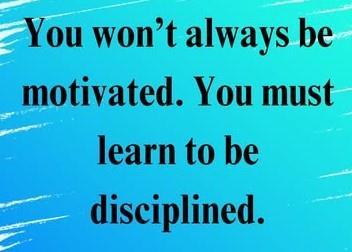


Receipts & Payments for the period 1 January – 31 March 2025
*Note: The Ross family donation mentioned on page 3 was not received until Quarter Two of the current financial year.
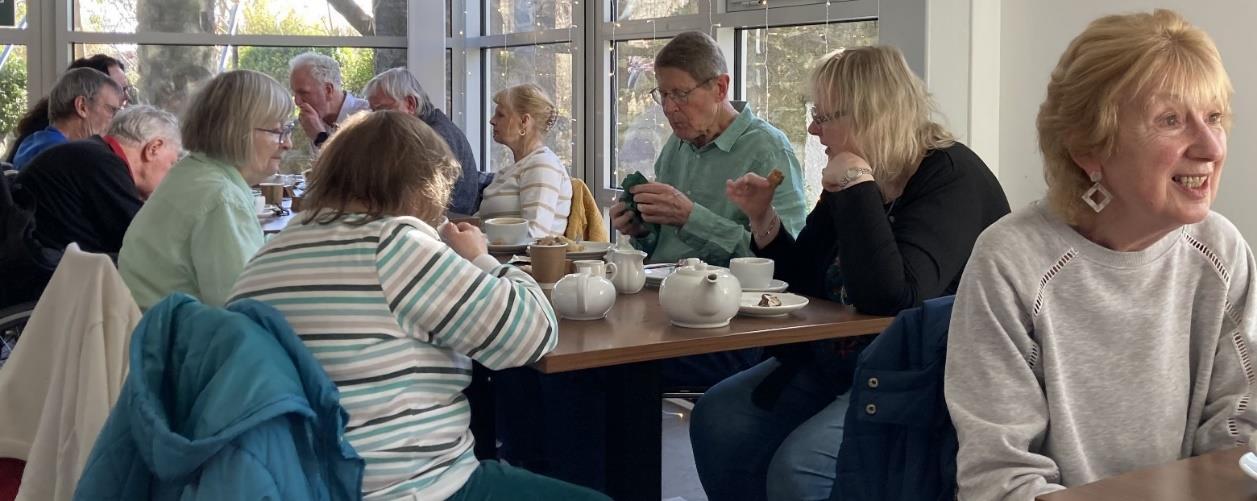


Photo Gallery photo credits – Sandra Rosie & Chrissie Kennedy
Coffee and chat, Gordon Highlanders Museum, March 2025
Coffee and chat, J G Ross Inverurie, April 2025
Coffee and chat, Kirkton Garden Centre Stonehaven, May 2025
Yoga Poses and Exercises for Better Sleep
By Jessica Migala


These postures are designed to help you calm down your body and quieten your mind so you relax and get to sleep with ease. The end of the day often comes too fast and many of us may find ourselves not quite ready to settle down. There may be those last-minute emails to send, dishes to do, others in the household who need your attention or anxieties about tomorrow’s to-do list. All that makes it tough to drift off to sleep. That’s where before-bed yoga comes in. The gentle movements are relaxing and the principles yoga is founded on - gratitude, self-compassion and contentment - when practiced before bed can be calming and help to promote sleep. One review looked at 19 studies with nearly 2,000 women with sleep problems and found overall, a yoga practice (at any time of the day) improved sleep quality compared with not practicing yoga. Before you try these poses, set the stage for sleep by centring your mind. The intention is to think about three good things that happened to you earlier in the day. It can be as little as having a cup of coffee. It helps alleviate worry and get you into a positive mindset helping you relax.
Yoga Belly Breathing
If you can only do one thing to prepare yourself for sleep, take a few minutes to work on your breath. During the day, you are likely to breathe shallowly from your chest but deeper breaths completely fill the lungs. This triggers a cascade of physiological changes. Your heart rate slows; your blood pressure decreases and muscle tension eases. How to do it: lying down, put one hand below your belly button. Breathe in through your nose to fill your lungs (your belly should rise). Breathe out through your nose. Repeat for a few minutes.

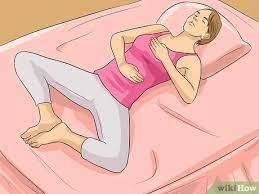
Range of Motion Sequence
You’ll take your joints through their full range of motion. This releases tension and tightness and can be done lying down in bed. It helps bring attention to body sensations, making you consider not just whatever happened with your family or at work or what was on the news over the course of the day but also how your body actually feels. Are certain muscles sore? Are certain muscles tired? Many of us spend much of our day in our heads. This practice guides you back into your body which is a good way to prepare for sleep. How to do it: lie down on your bed. Circle your ankles. Extend your legs out long then bend your knees. Lift and lower your hips to make circular movements. Bend your elbows then extend your arms long at your sides. Shrug and circle your shoulders. Repeat as needed and as feels good.

Knee Hug
If you have back issues, the knee hug will feel particularly nourishing. Being hunched over a desk all day can cause aches. This pose will relieve it. How to do it: lie down and hug one or both knees into your chest (whether or not you do one or both depends on your physical abilities.) If you can hug both knees into your chest at the same time, rock from side to side to massage your spine.
Shoulder Shrug
It’s common to hold tension in your neck and shoulders. It’s even more common for tightness and pain to creep up here if you spend your day working at a computer or staring at your smartphone.
How to do it: sit on your bed, sitting up straight with good posture. Inhale and bring your shoulders up to your ears and squeeze your arm and shoulder muscles tightly. Exhale and release your shoulders, pulling your shoulder blades downward. Repeat a few times.
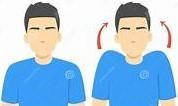
Corpse Pose

If you practice yoga, you know this as Savasana which is the final pose of many classes. It looks easy to lie down and do nothing but it’s among the hardest poses to master because it requires you to release all physical and emotional tension and let go of mental thought. Lie down, be still and try to not think about anything in particular. This will help you relax. It’s about noticing whatever thoughts and feelings come up without dwelling on any particular one.
How to do it: lie down with your arms at your sides, palms up and relaxed. Close your eyes and focus on the rise and fall of your breath. If you have trouble with intrusive thoughts, acknowledge their presence and picture them floating away.
You can keep updated with our activities by following us at: https://www.facebook.com/aberdeenMSsupport

Alternatively, to get regular updates about our activities, send your e-mail address to info@youraims.org
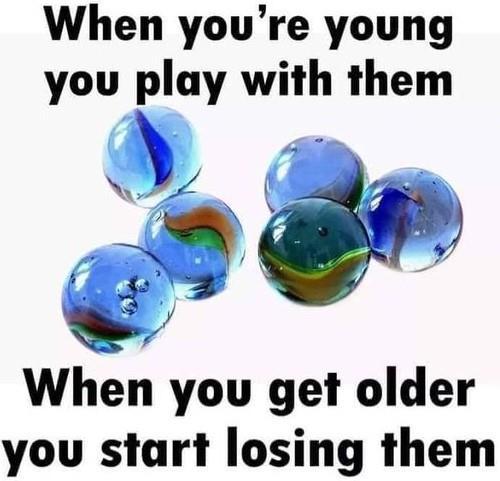





Waste Management as You Age by
Michelle Stern
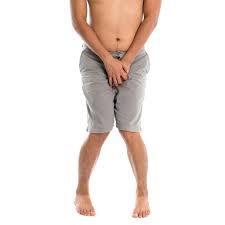


Bowel and bladder issues are common for people with multiple sclerosis at any age but as one gets older, some of these issues may be directly related to the aging process itself and not to MS. If you note a change in your bowel and bladder, don’t just chalk it up to the disease process or an irreversible cause from aging.
Bladder issues can be identified as a failure to store, a failure to empty or a combination of both. In the general population there are many adults over 60 who have urinary incontinence because of anatomic or physiological changes occurring. Frequent urinary tract infections, obesity and decreased mobility are important risk factors.
Most people with MS have a failure to store because of the bladder muscles’ overactivity which leads to frequent urination, urgency and incontinence. This is commonly treated by using medications to help decrease the overactive muscles. As one ages, they are more likely to be prone to side effects associated with these medications, such as dry mouth, constipation and confusion.
The use of a diuretic can increase frequency. If one has urinary frequency, it is helpful to wear clothes which are easily removed, use timed voiding, limit fluid intake, limit caffeine and alcohol consumption and use urinals or bedside commodes if mobility is an issue.
A failure to empty the bladder usually needs to be treated by using intermittent catheterisation or having an indwelling catheter. As one ages, it may be more difficult to perform intermittent catheterisations due to changes in mobility, coordination, vision and cognitive function. Medications can increase urinary retention.
A combination of voiding dysfunction is commonly caused by sphincter dyssynergia which is a lack of coordination between the bladder muscle and the sphincter. Medication can help relax the bladder sphincter but can cause low blood pressure on standing and the older population should be monitored closely.
Constipation, diabetes and urinary tract infections are common causes for developing new bladder symptoms. Heart failure or venous insufficiency can cause an increase in urination, especially when lying down. In addition, women may develop atrophic vaginitis due to the lack of oestrogen, while men may have difficulties related to an enlarged prostate.
Your doctor may recommend the following procedures:
• Measuring postvoid residuals, which is the amount of urine left in the bladder after voiding.
• Urinalysis and urine culture looks for signs of an infection. This can also be used to diagnose diabetes if glucose is present.
• Urodynamic studies give information on how the muscles of the bladder are working.
• Chronic indwelling catheters can cause colonisation of the urinary tract, renal stones and squamous cell cancer and should be monitored for these issues on a regular basis.
Bowel dysfunction can be divided into constipation or incontinence, while some may have a combination of the two. As this topic has had limited studies compared to the bladder, the true nature of this issue is not yet fully understood.
Constipation: as one ages the motility in the intestines is slowed down, with decreased contractions and a reduced ability to absorb certain vitamins and minerals, as well as a reduced tolerance of certain foods. Constipation can be exacerbated by the lack of mobility, weak abdominal muscles and inadequate hydration (although hydration must be balanced with bladder issues and finding a balance can be challenging).
Medications can cause constipation, including iron, calcium, antidepressants and anticholinergic agents. It can be related to other medical causes. Treatment of constipation includes: fluid intake of eight to 10 cups of water daily, 15 grams of dietary fibre (wheat bran, fruits, vegetables) introduced slowly into the diet to reduce feeling bloated and a bowel programme.
A bowel programme should be individually tailored, based on level of mobility and cognition. It needs to be monitored regularly for changes in ability and the program adjusted as needed. Commonly used medication in a bowel program includes stool softeners, bulk formers and laxatives such as Senokot, which takes up to eight to 12 hours to work. If constipation persists, a suppository can be used which typically works in 30 minutes to an hour. For people with faecal incontinence, a timed toileting and bowel programme can help reduce the risk of bowel accidents later in the day. The programme needs to take into account the mobility and cognitive status and be adjusted as needed. Diarrhoea is not because of MS and should be investigated for other causes. Many medications can lead to diarrhoea, such as antacids and antibiotics. As one ages caffeine, artificial sweeteners, spicy food, fatty food and fruit juices can cause diarrhoea.
Anyone older than 50, with MS or not, is recommended to have their stool tested regularly for blood and undergo routine colonoscopy. A sudden change in bowel habits or rectal bleeding also warrants investigation. Other medical causes of bowel dysfunction needing to be investigated are diabetes, electrolyte disturbances, parathyroid disease and thyroid disease. Bowel and bladder issues can affect one’s quality of life and need to be addressed. People are encouraged to discuss these issues with their medical team and be aware of the challenges they may face as they reach an older age.
Looking Back
Once upon a time when a window was just a square hole in a room… When an application was something you filled out to get a job … When a keyboard was a piano and a mouse was just a little animal… When a file was a metal cabinet and a hard drive was a bad road journey… When cut was done with knife and paste with glue… When a web was a spider's home and a virus was the flu….
Or when apple and blackberry were just fruits… That was the time when we had a lot of time for our family and friends. Don’t let these modern conveniences make you forget what is really important in life.
Puns and One-liners
I’m going to plant horse chestnut trees all over the place – it’s part of my plan to conker the nation.
What washes up on very small beaches? Microwaves.
I made a pair of binoculars from old fish finger boxes. They’re brilliant. I get a birds-eye view of everything.
What was that film called where that kid was home alone?
I went to a horrible bar called The Fiddle. It really was a vile inn.
What kind of doctor is Dr Pepper? A FIZZician!
I dreamt I was swimming in orange juice – turns out it was just a Fanta – sea.
A man died after falling into a vat of coffee. He didn’t suffer – it was instant.
I lost my job as an ice cream tester as I couldn’t do sundaes.
Did you hear about an explosion at the French cheese factory? De brie is everywhere.
McDonald’s new T-bone meal is a big McSteak.
Vegans … unite in saladarity!
My friend Jack claims he can communicate with vegetables …. Jack and the beans talk. I ate four cans of alphabet soup then probably took the biggest vowel movement ever.
I’m considering opening a coffee shop chain in Russia and calling it Tsarbucks. I noticed an empty milk bottle in the fridge. My wife said it’s for when she fancies a black coffee.
KFC. I haven't eaten there but it's on my bucket list.
My doctor said my sugar level was too high from my blood test. I went home and moved it to a lower shelf.
Uncle Ben has died - no more Mr Rice Guy.
If we’re not supposed to have a midnight snack, why is there a light in the fridge?
Alcohol is a solvent: it dissolves marriages, families and careers.
I stabbed a box of corn flakes this morning. Does that make me a cereal killer?
I said to the wife, ‘Would you like a Kit Kat Chunky?’ and spent the next five hours in Accident and Emergency.
Frank Sinatra’s son has launched a Wildebeest Pâté - start spreading the gnus.
The first French fries weren’t cooked in France. They were cooked in Greece.
A very short painter walks into a Parisian bar and offers to buy his friend a drink. His friend rushes out shouting, ‘Can’t stop now, no time Toulouse’.
I deleted all the German names from my phone. Now it is Hans free.
My doctor told me my patella problems started with knee jerk reaction.
On Monday we start diarrhoea awareness week …. runs until Friday.
When MS Stops You Being There
by Devin Garlit


Recently, someone mentioned their concern over being able to attend an important family gathering. Not only were they concerned about making it for their own sake but they also mentioned they feared the backlash they might get from family members for not being there. This hit home for me as these are common concerns. MS forces many of us to miss out on key moments in life, a fact hitting us in multiple ways. MS symptoms can be notoriously unpredictable. I can feel pretty good one minute and end up laid out on the couch the next. Many times, the process of getting ready stops me in my tracks and I end up cancelling my plans at the last minute. Other times I make the hard realisation that, no matter how prepared I am, an occasion may be too difficult for me to attend. Traveling is difficult for me: the weather could be too warm; the venue may not have enough seats and so on. There are many conditions I need to meet in order to attend something.
It means I miss out on a lot of occasions: weddings, birthdays, graduation parties, concerts and dinners. As accustomed to it as I am, it’s still something which makes me feel upset. I am missing out and can’t be there with everyone but also because I am letting others down. Missing things and feeling bad about it is so common for me because of MS and it’s something I was not prepared for or expected when I was diagnosed. There are times when we have to cancel or not attend something and it’s not well received. I’ve missed occasions where the reason for my absence was not understood, even though it’s not my fault. The emotions of a moment special to someone can make it difficult for people to understand.
I’ve heard a fair share of nasty responses when informing people I can’t attend. I’m usually sympathetic to their comments; after all, I already feel bad about not being there but it’s frustrating and makes me feel worse. The story I mentioned earlier made me think about specific situations I may someday have to deal with. Namely, traveling for the funerals of loved ones who live pretty far from me. That seems like an odd and morbid thing for me to worry about but it is an issue I’ll have to deal with at some point. Could I travel away, on short notice, to a beloved family member’s funeral? At this point in my life, I don’t know I’d physically be able to. That’s a harsh realisation. What would the backlash be for not going? An already emotional moment could strain some relationships. The sad thing is, that while it’d be nice for people to be more understanding of our limitations, most of the time everyone’s feelings are legitimate. Being absent because of MS is tough on everyone involved. This situation demonstrates how it’s not just the person with the disease who gets impacted but their friends and family as well.
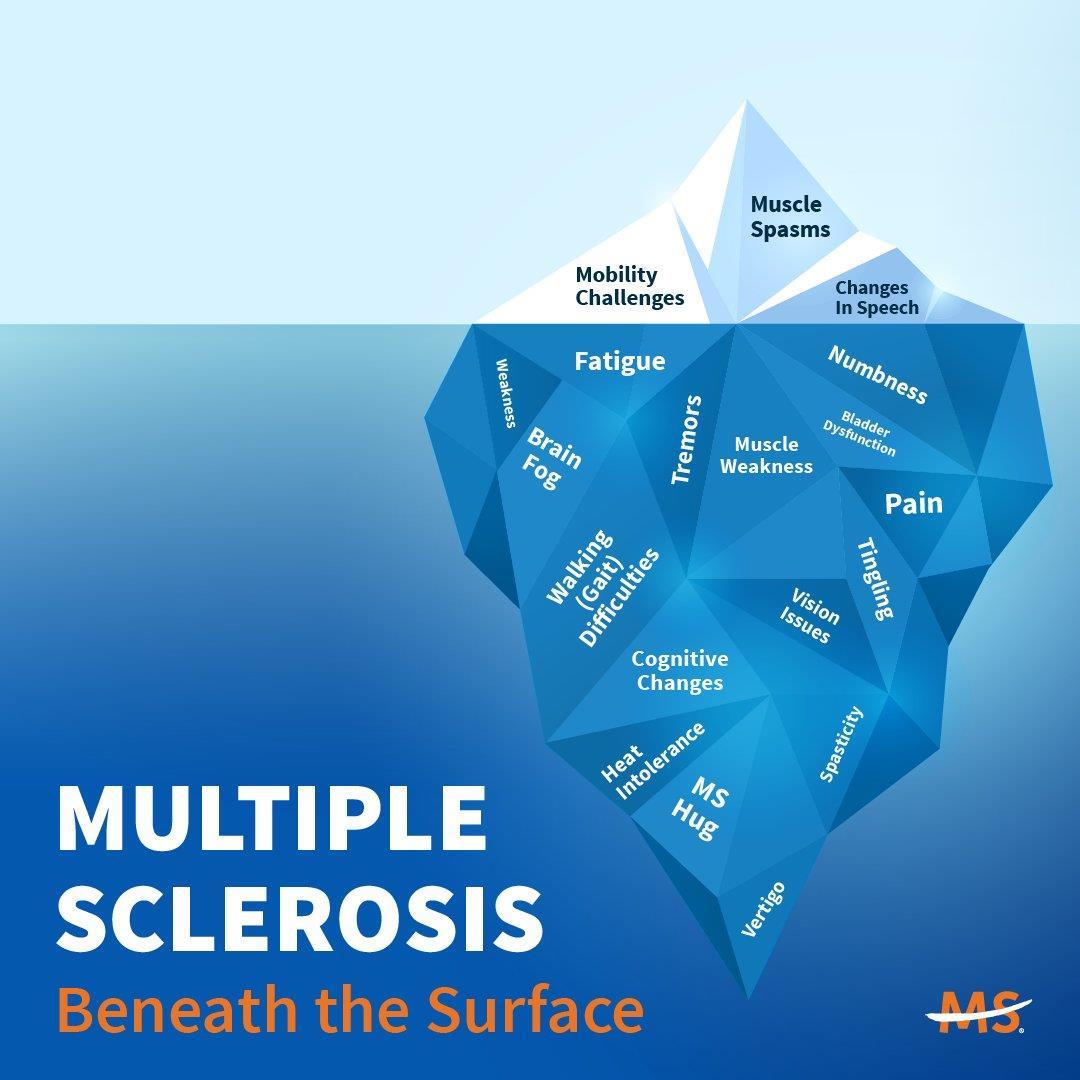
Thoughts of the Day



My wife asked me to take another woman out to dinner and a movie. She said, ‘I love you but I know this other woman loves you and would love to spend some time with you.’
The other woman my wife wanted me to visit was my MOTHER who has been a widow for 19 years but the demands of my work and three children made visiting difficult. That night I invited her to go out for dinner and a movie. ‘What’s wrong, are you well?’ she asked. My mother is the type of woman who suspects a late-night call or a surprise invitation is a sign of bad news. ‘I thought it would be pleasant to spend some time with you’ I responded. She thought for a moment, then said, ‘I would like that very much.’
As I drove to pick her up I was a bit nervous. When I arrived at her house, I noticed she too, seemed to be nervous. She was wearing the dress she had worn to celebrate her last wedding anniversary. She smiled from a face that was as radiant as an angel’s. ‘I told my friends I was going to go out with my son and they were impressed’ she said, as she got into the car. We went to a restaurant which was nice and cozy. After we sat down, I had to read the menu. Her eyes could only read large print. Halfway through the starters, I lifted my eyes and saw Mom sitting there staring at me. A nostalgic smile was on her lips. ‘It was I who used to have to read the menu when you were small’ she said. ‘It’s time you relax and let me return the favour’ I responded. During dinner we had an agreeable conversation – nothing extraordinary but catching up on recent events of each other’s life. We talked so much we missed the movie. As we arrived at her house later, she said, ‘I’ll go out with you again but only if you let me invite you.’ I agreed.
‘How was your date?’ asked my wife when I got home. ‘Much more than I could have imagined’ I answered.
A few days later, my mother died of a heart attack. It happened suddenly and I didn't have a chance to do anything for her. Sometime later, I received an envelope with a copy of a restaurant receipt from the same place mother and I had dined. An attached note said: "I paid this bill in advance. I wasn't sure I could be there but nevertheless, I paid for two plates – one for you and the other for your wife. You will never know what that night meant for me. I love you, son.’
At that moment, I understood the importance of saying in time: ‘I LOVE YOU’ and to give our loved ones the time they deserve. Nothing in life is more important than your family. Give them the time they deserve. These things cannot be put off until some other time.
A bottle of water in the supermarket is worth about £0.50. The same bottle in a bar costs £2. In a good restaurant or hotel, it can be worth up to £3. At an airport or on the plane, you may be charged £5. The bottle and the brand are the same, the only thing that changes is the place. Each place gives a different value to the same product. When you feel like you are worth nothing and everyone around you belittles you, change places, do not stay there. Have the courage to change places and go to a place where you are given the value you deserve. Surround yourself with people who really appreciate your worth. Don't settle for less!

I'm
stepping out of my comfort zone by
Vanda Varga


Yes, the 'outside world' is scary. Yes, the unknown is scary. Yes, change is scary but what could be any scarier than staying where we are forever? No development, no growth, no... life!
We know that change is inevitable in life, don't we? There's no point in resist it. It's happening. As life and the world constantly changes and evolves, we would even have to change something to keep everything the same! If change is happening anyway, why not do it intentionally? Why not choose how we want to change and evolve?
Why not step out of that lukewarm comfort zone and step out into our growth zone?
What is the one thing you've been wanting to do but have been too scared to actually do it? What can you do today to start making it happen?
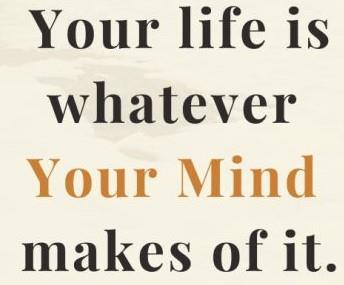

Strategies for Better Sleep by
Robin McBride



On the flickering late-night TV screen, a little pack of pale, skinny Zs on spindly legs scurry through the darkened streets – fugitives from some poor insomniac tossing in his bed. It's a commercial for a mattress store. Other commercials celebrate the benefits of various sleep aids with shots of smiling, refreshed people awakening with their happy dogs and smiling children to greet a new day. If we are to believe the ads, sleeplessness pervades our society but for those of us with MS, the solution is rarely as simple as a new mattress or a sleeping pill. What is robbing you of a good night’s sleep? Before you seek a solution, you must first identify the culprit. One of the most prevalent causes of sleeplessness in MS is the worry and stress imposed by this unpredictable neurological disorder. Medications can contribute to sleeplessness. Interferon-based disease-modifying drugs commonly cause flu-like symptoms which can make it difficult to fall asleep. Other medications prescribed for treating MS symptoms are actually nervous system stimulants. Some antidepressants, particularly the selective serotonin reuptake inhibitors also have a stimulating effect. Neurogenic bladder and urinary tract infections are prevalent among those with MS. Repeated trips to the bathroom can disturb your sleep but there are pharmacological and behavioural options to reduce these nightly jaunts to the bathroom. Pain, muscle spasms, cramps, myoclonic jerks, restless leg syndrome, spasticity and hypersensitivity of the skin to bedclothes play significant roles in sleeplessness. Heat sensitivity can play a role. Digestive difficulties such as gastric reflux disease can interfere with sleep too. Other neurological diagnoses, such as sleep apnea, can be a factor. If the causes of
sleeplessness are not readily identifiable, further evaluation should be done. Many people rely on prescription sleep aids for relief. These have their place but long-term use is not the answer. There are many alternative strategies to be found through research and talking to others with MS.
A good mattress or a foam topper for an existing mattress can make a world of difference - maybe there is something to those commercials! Cooling pillows, ice packs and light bedclothes are helpful. For shoulder, hip, knee and ankle pain, the strategic use of extra pillows for limb positioning may provide relief, if they don't cause overheating. The importance of creating a comfortable sleeping environment with fans, air-conditioning in the summer and open windows can't be overemphasized.
Avoid heavy meals, caffeine, alcohol or strenuous exercise before sleep. Also avoid disturbing TV shows or news and don’t work in bed. Keep the bedroom for sleeping. A growing number of people are finding yoga, inspirational reading, audio books, warm (not hot) baths and meditation effective lead-ins to sleep. If possible, create a serene atmosphere in your bedroom. Utilise pastel colours, soft lighting, soothing music and uplifting fragrances. Make it a retreat for relaxation and inspiration – a refuge from your busy life. A peaceful routine in the last couple of hours before sleep may be helpful. Exercise, acupuncture and hippotherapy have shown beneficial effects on insomnia or sleep disturbances. more studies are needed to conclusively understand the benefits of these therapies for individuals with MS. For mild insomnia, a bedtime cup of chamomile tea or warm milk can provide sufficient relaxation. For leg cramps, you may benefit from additional calcium, magnesium or potassium. Other sedating herbs include Asian ginseng, Siberian ginseng, goldenseal and St. John’s wort. Use caution if you are currently taking other sedating medications. Sweet dreams!


Our charity contacts details
Should you wish to get in touch please e-mail us at info@youraims.org. Ian Gourlay is our chairman and newsletter editor. You can telephone Ian on 01224 820453, write to him at 43 Gordon Place, Bridge of Don, Aberdeen AB23 8RB or e-mail ian.gourlay@youraims.org
M S Nurses
Anyone living in the NHS Grampian catchment area has access to the M S nurses. The Aberdeen team is based in the Department of Neurosciences, Ward 205 [Pink zone], Aberdeen Royal Infirmary. Contacts at ARI are: Mairi Maguire, Pauline Wilson and Julie Robertson. They are available Monday to Friday 08:30 – 16:30. An answering machine may take a message and a nurse will call you back as quickly as possible. Telephone: 01224 551263 E-mail address: gram.msnurses@nhs.scot
M S Helplines
The MS Society offers free advice on any matter relating to multiple sclerosis to anyone affected by the condition.
Telephone: 0808 800 8000 open 9am – 7pm Monday – Friday for an immediate response. There is an answering machine to leave messages over a weekend and someone will get back to you as quickly as possible. E-mail: helpline@mssociety.org.uk
The MS Trust believes nobody should have to manage multiple sclerosis alone. Its enquiry service is available 9am - 5pm Monday - Friday. Telephone: 0800 032 3839.
Email: ask@mstrust.org.uk or visit the website https://mstrust.org.uk/what-we-do/aboutus/information-team
Disclaimer
The content of this publication is for information purposes only and does not constitute advice or a recommendation. Where we provide information about external organisations or service providers, we are not able to offer any guarantee on the quality or safety of their services or products or whether they are suitable for an individual’s needs. We take no responsibility for any errors or omissions in this information.
Aberdeen Independent Multiple Sclerosis is a SCIO regulated by OSCR Scottish charity number SC051225

